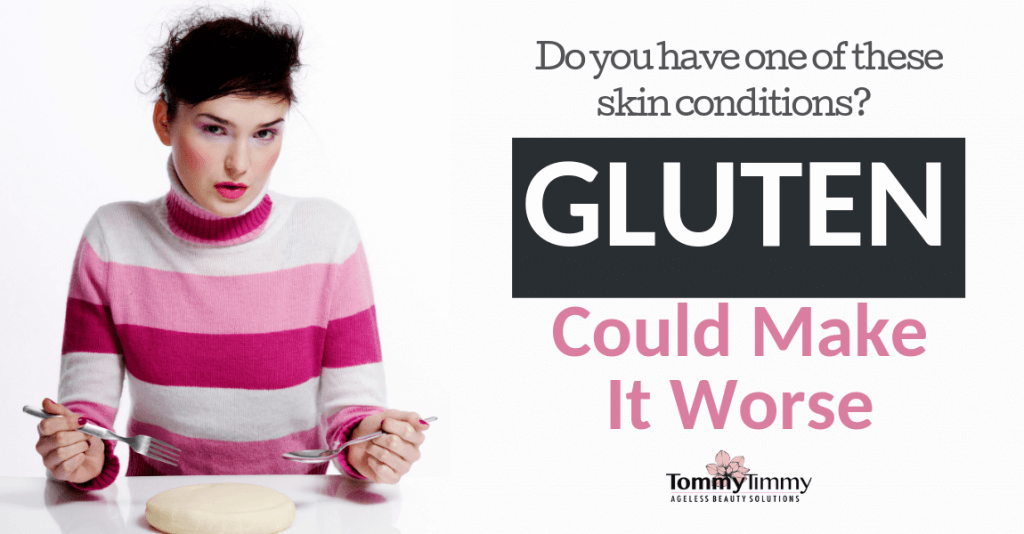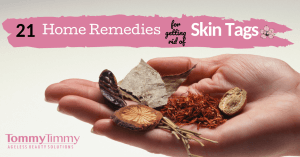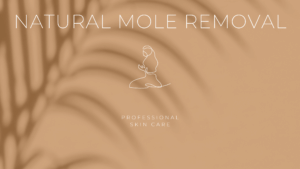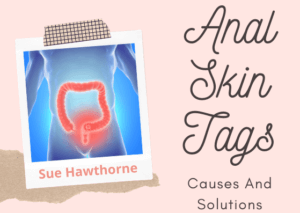In recent years, many people with gluten intolerance have opted to go on a gluten-free diet in the hope of trying to eat healthily. While some sources say that gluten can only cause health-related issues to those with Celiac disease, other sources say it can also be a problem for other people.
Contents
What is Gluten?
Gluten is a class of proteins found in wheat, rye, and barley. They are called prolamins. It contains two primary proteins called glutenin and gliadin. These proteins are highly elastic and are what makes dough suitable for making baked products. However, a gluten allergy or wheat allergy can be worsened if the person has gluten intolerance or wheat intolerance.
Gluten intolerance can be responsible for causing or worsening several skin conditions. Some gluten proteins, such as gliadin, can cause increased production of intestinal proteins known as Zonulin. This causes gaps to open in the intestinal cells called enterocytes, which are usually tightly bonded. This results in the body producing antibodies against the gliadin.
In 25 percent of the people with Celiac disease (a condition brought about by severe gluten intolerance), a rash calledis herpetiformis may appear. Bandnot the only skin condition caused by gluten intolerance. It can cause various skin conditions to people with Celiac disease and a larger group of people who have Non-celiac Gluten Sensitivity. Some hyperpigmentation and inflammatory skin conditions have also been linked to gluten intolerance. Below are some skin conditions that can be brought about or worsened by gluten consumption.
Dermatitis Herpetiformis
As mentioned earlier, this is an inflammation of the skin that causes itchy rashes that appear on the elbows, buttocks, knees, scalp, and back in about 25 percent of the people with Celiac disease. While medication can be prescribed for this rash, mostly in the form of over the counter creams, reports indicate that maintaining a gluten-free diet can effectively clear this skin condition.
Psoriasis
This condition causes a red, scaly, nd dry rash on the skin. Accorandorted cases, there is a link between this condition and gluten intolerance in people with Celiac disease and gluten sensitivity. The condition has been linked with gliadin, one of the main proteins in gluten. Once they go on and maintain a gluten-free diet, many people with Psoriasis report dramatic improvements in their skin condition.
Eczema
Eczema causes a white, scaly rash on the skin. While this condition mostly affects children, it can also appear in adults. According to some reported cases, Eczema has been linked to gluten intolerance. In cases where the patients went on a gluten-free diet, there was an improvement in their skin conditions.
Acne
80 percent of the people in western culture between ages 11 and 30 suffer from acne. This hyperpigmentation condition causes red, pus-filled pimples to appear on the skin. While there are no medical reports linking acne to gluten, many people have reported considerable improvements after adopting a gluten-free diet combined with low-carb intake.
Alopecia Areata
This skin condition causes hair loss and has been linked with Celiac disease. A reported 0.7 percent to 3.8 percent of the people with Celiac disease are said to have Alopecia Areata. Some reports in the past seemed to indicate that it affects male adults more than females, but new studies show that it can affect both. Most people with this condition experience hair regrowth after going on a gluten-free diet. Even in some cases where people don’t have Celiac disease, hair growth has been attributed to a gluten-free diet.
Many other skin conditions apart from Celiac disease have been linked to gluten intolerance, including chronic urticaria, Keratosis pilaris, cutaneous vasculitis,, and many others.
Diet recommendations
A paleo diet (or gluten free diet) is recommended if you have the skin conditions mentioned above,, including:
• Fish – Mackerel, Salmon, and Herring are some of the fish that are great for skin health. They are rich in Omega-3 fatty acids,, which reduce inflammations and keep your skin moisturized and thick.
• Fruits – fruits such as Avocados, tomatoes are good for your skin. They are also good for weight loss.
• Vegetables – Spinach, Broccoli, walnuts, sunflower seeds, red or yellow bell peppers, and sweet potatoes are also good for your skin
Conclusion
There have been significant and considerable reports to ascertain the relationship between gluten intolerance and skin conditions. While there are many non-Celiac people with gluten sensitivity or a food allergy, a large number of people don’t suffer from any gluten effects. It’s important to mind what you eat to maintain a healthy lifestyle.









